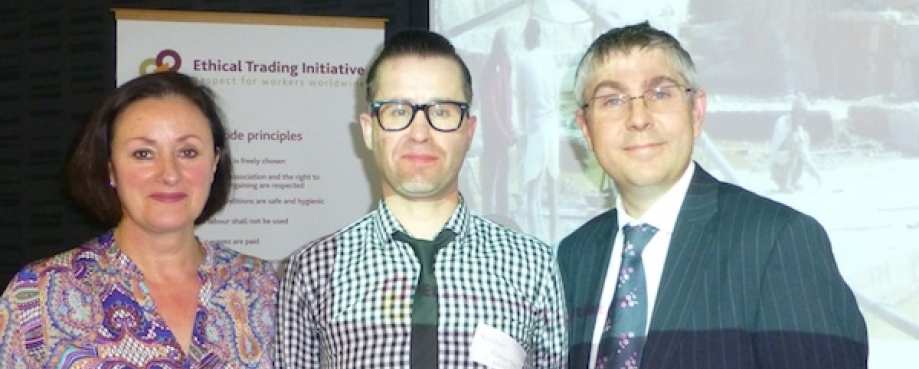
UK building, construction and landscaping sector leaders yesterday learned about a new business and human rights programme in the export sandstone sector of Rajasthan, India.
The Ethical Trading Initiative (ETI) and member companies, trade unions and NGOs shared details of their new programme to tackle labour rights issues within the Rajasthan sandstone sector. The group has recently launched a two-year project, working with India-based stakeholders to advance the human rights agenda within this sector.
ETI Head of Programmes, Debbie Coulter, said: “Workers in Rajasthan’s sandstone sector face a number of challenges, with reports highlighting issues of forced and bonded labour and grave health and safety concerns. The event offered an important opportunity to share what we know with UK industry representatives, highlighting how our members are proactively working with local industry to improve working conditions.”
The project builds on work that ETI members have undertaken within their Rajasthan sandstone supply chains. During the past year, ETI and members undertook extensive in-country research and stakeholder engagement, including a number of meetings and field visits. This highlighted that while Western markets demand compliance with labour codes and standards, these were often not well enforced by the local industry.
Debbie Coulter said: “Our project focuses on improving sector-wide capacity to address business and human rights issues. The focus is very practical; we will be developing tools and resources that quarry and stone processing yard owners can use, to embed human rights principles within their core business activities. Our aim is that this will lead to grievance mechanisms being better integrated into business procedures, so that workers have stronger channels for making their voices heard.”
The project is being driven forward by 12 ETI company members that import sandstone from Rajasthan for UK and European markets, along with ETI trade union and NGO representatives. It sees these members combine their collective influence within the Rajasthan sandstone sector in order to drive positive, sustainable change for workers.
Chris Harrop, Chair of United Nations Global Compact in the UK and Group Marketing Director & Director of Sustainability of Marshalls, said: “The UN Guiding Principles on Business and Human Rights places new expectations on governments and businesses, in terms of upholding respect for workers’ rights within global supply chains. This is a pioneering project; you are seeing UK and European stone importers joining forces, intent on upholding their pledge to workers within the Rajasthan sandstone supply chain.”
Duncan Robertson, Production Planner at Brett Landscaping, said: “We joined ETI around 5 years ago as a means to understanding issues in our supply chains and what we could do to drive change. Being a member of ETI, as a group and as a collective, gives us the means to contribute to real and lasting change for the lives of those workers supplying us with products.”
Our Rajasthan sandstone programme page has further details, including the full list of participating ETI members.
